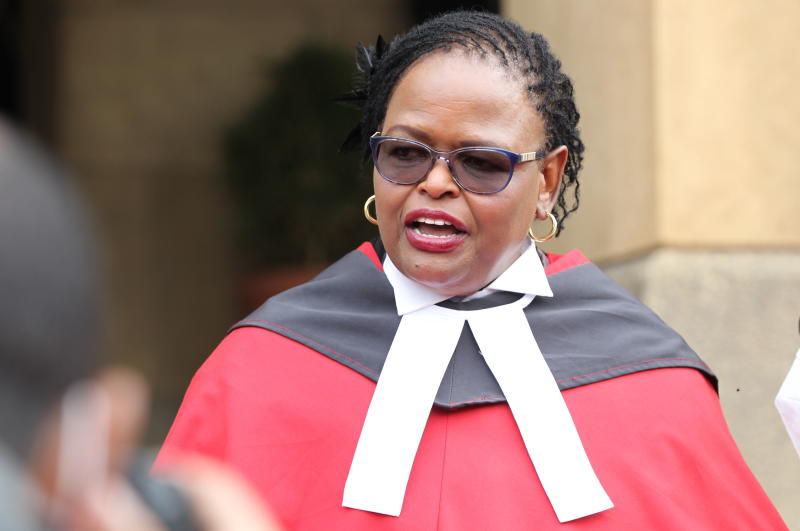UNHCR must address suffering of LGBTI refugees in Kenya
- Spotlight East Africa
- Jul 10, 2020
- 4 min read

LGBTI activists in the U.S., Belgium, the Netherlands, Germany, the U.K. and other countries are expressing a growing concern about the way in which a considerable group of African LGBTI refugees, or at least part of them, are being treated in Kenya. Whereas they appreciate the efforts of UNHCR (the U.N. Refugee Agency), they also deplore the continuous cries of despair coming out of Kenya, especially from LGBTI refugees in Kakuma Refugee Camp. We urge UNHCR to take these claims and problems more seriously and to open a serious dialogue with the aim of improving the situation considerably. This needs to happen in the short term. Homosexuality is criminalized in all but a few countries in Africa, which means that LGBTI people live marginalized and often in terror of their lives. Even in the countries that do accept sexual diversity, such as South Africa, which goes as far as to recognize same-sex marriage, the power of disapproval by society is such that LGBTI people live in fear of exposure, loss of jobs, or rejection by their families to the extent of being killed in “honor killings.” Many LGBTI citizens in Africa are being excluded from their families or communities, which explains why many of them flee to other countries hoping to find a decent life there. The situation has received evermore media attention over the past decade, fomented by the Ugandan government’s particularly hostile stance, which provoked an exodus by LGBTI people, one which is ongoing. The obvious destination for these persons of concern, asylum seekers and refugees is neighboring Kenya, where UNHCR is based in Nairobi. For some years, the resettlement of LGBTI refugees in third countries proceeded at a reasonable pace, but the refusal of the Kenyan government last year to decriminalize homosexuality, plus the obdurate stance of the U.S. administration not to accept more refugees from certain categories, has worsened the situation. We also see that other countries, for example those of the European Union, don’t do enough to accept LGBTI refugees from Kenya, where at least many hundreds of them have fled. The Kenyan government insists that LGBTI refugees be kept in refugee camps, the largest and most notorious of these being Kakuma in Turkana County in the north of Kenya. There, some two hundred LGBTI refugees from Uganda, Burundi, Rwanda, the Democratic Republic of Congo, Ethiopia, Somalia and South Sudan, women, children and men, are kept without any protection, subject to attack by others living at the camp, mostly Sudanese, and the local Turkana people. Police protection is not provided, since Kenya insists that LGBTI people there are not refugees but “criminals.” A mercenary security company G4S is also complicit in the brutality towards LGBTI refugees. The medical facilities at Kakuma frequently refuse to treat LGBTI refugees. Advocates from around the world have been lobbying UNHCR to act and remove these LGBTI refugees to a safe place, but these appeals fall on deaf ears. The stance of UNHCR is that the stories by LGBTI refugees of attacks are either fabricated or greatly exaggerated, but eyewitness accounts by the LGBTI refugees themselves provide evidence in videos, photographs and graphic emails. The attacks are extremely violent, involving knife and panga attacks and burning of living quarters, theft of food and mobile phones, and refusal of access to shops and water. Trust in UNHCR is fast eroding, as no one can understand what the agency’s agenda is; it mostly maintains a deafening silence. The suspicion is that it is under the thumb of the Kenyan authorities, and does not have the moral stamina to confront Kenya on this abuse of human rights. One thing is certain: UNHCR, under High Commissioner Filippo Grandi, does not welcome outsiders’ emails, and other than bland assurances that all is well at the camp, or protestations (amounting to threats) that emails on behalf of individuals put them at further risk, there is no comment from Geneva, Nairobi or the Kakuma Refugee Camp itself. Social media access has been blocked, and the belief among LGBTI people is that this is on the direct orders of UNHCR, in collusion with the Kenyan authorities. Some clearly don’t like the LGBTI refugees to inform the international community about what they are undergoing! While Black Lives Matter has taken the world by storm, Black LGBTI Lives in Africa do not get a look in, and the LGBTI world outside shows virtually no interest, preferring to concentrate on celebrating Pride month as though the battle has been fought and won. It never will be, but the very least that can be done is to remove all LGBTI refugees from Kakuma, as happened in December 2018, before the Kenyan authorities stepped in and ordered their return to Kakuma, with the evermore gory results that are being seen, harrowing videos and photographs of bodies hacked and bloodied, with minimal medical care and attention. We would love serious NGOs like Amnesty International, Human Rights Watch and others to step in and get involved. To our satisfaction, we notice a growing willingness within the NGO community to get involved and investigate the claims and worries of many LGBTI refugees in Kenya. The world cannot continue to look away. And we, as serious LGBTI activists, clearly refuse to look away and leave these fellow human beings to their (sad) fate.
This article was published in Washington Blade.




Comments